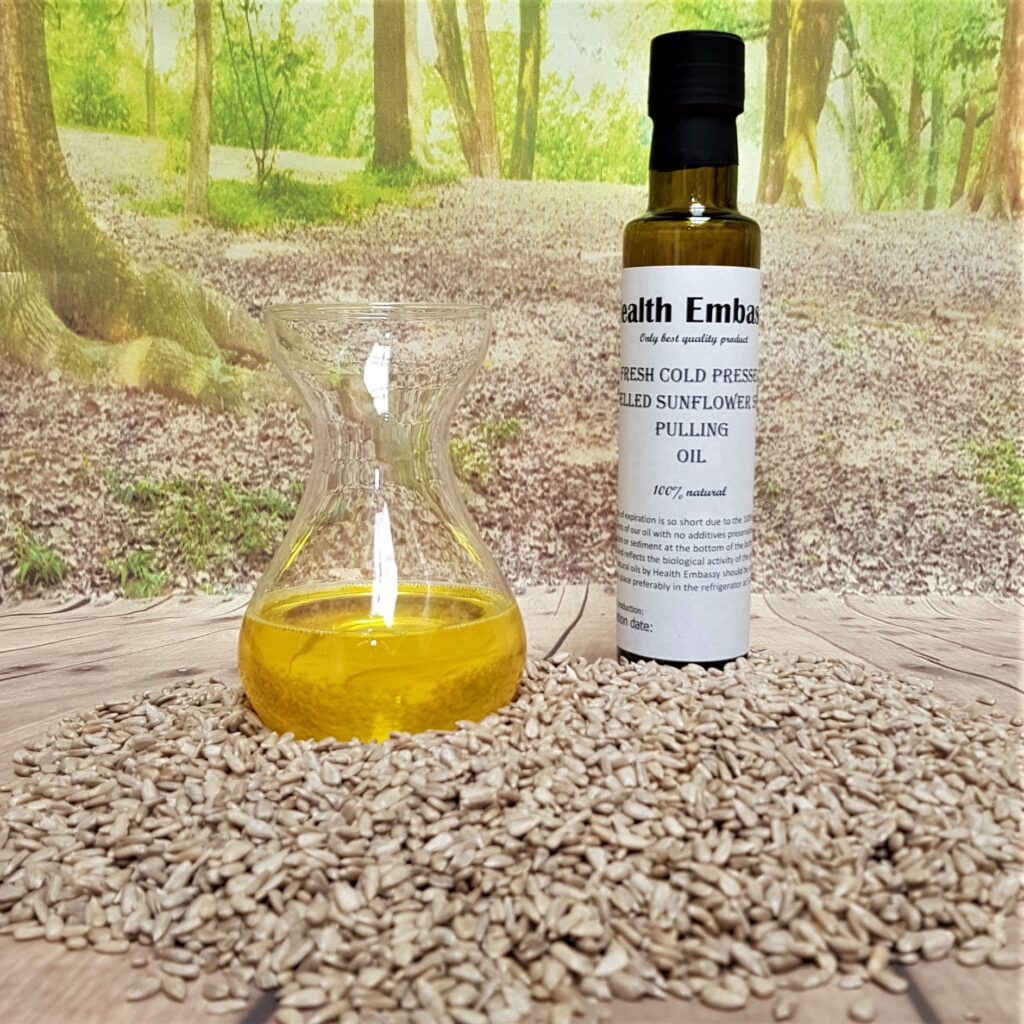Cooking is an art, and like any art form, it requires the right tools and materials to achieve excellence. Natural spices are one such essential tool that can elevate your culinary creations, adding depth, flavor, and nutritional benefits to your dishes. In this article, we will delve into the world of natural spices, providing you with tips and tricks to make the most out of them in your kitchen.
Table of Contents:
- Why Choose Natural Spices?
- Popular Natural Spices and Their Uses
- Health Benefits of Natural Spices
- Cooking Tips and Techniques
- Recipes Featuring Natural Spices
- Frequently Asked Questions
Why Choose Natural Spices?
Choosing natural spices over conventional ones has several advantages. Natural spices are grown without the use of synthetic pesticides, fertilizers, or genetically modified organisms (GMOs). This results in a product that is not only healthier for you but also better for the environment. Here are a few key reasons to opt for natural spices:
- Purity: Bio spices are free from harmful chemicals and additives, ensuring you get the purest form of the spice.
- Flavor: The absence of synthetic chemicals means that pure spices retain their natural, robust flavors.
- Nutritional Value: Ecological farming practices help preserve the nutrients in the soil, resulting in spices that are richer in vitamins and minerals.
- Environmental Impact: Natural farming promotes biodiversity and soil health, making it a more sustainable choice.
Popular Natural Spices and Their Uses
Turmeric
Turmeric is a bright yellow spice commonly used in Indian cuisine. It has a warm, earthy flavor and is known for its anti-inflammatory properties.
Uses:
- Curries: Turmeric is a staple in many curry recipes.
- Smoothies: Add a pinch of turmeric to your morning smoothie for a health boost.
- Soups: Use turmeric to enhance the flavor and color of soups and stews.
Cinnamon
Cinnamon is a sweet and aromatic spice that is often used in baking and desserts. It also has numerous health benefits, including blood sugar regulation.
Uses:
- Baking: Add cinnamon to cakes, cookies, and bread.
- Beverages: Sprinkle cinnamon in your coffee or hot chocolate.
- Savory Dishes: Use cinnamon in savory dishes like Moroccan tagines.
Ginger
Ginger is a spicy and pungent root that adds a zesty kick to both sweet and savory dishes. It is also known for its digestive benefits.
Uses:
- Teas: Brew fresh ginger slices in hot water for a soothing tea.
- Marinades: Use ginger in marinades for meats and seafood.
- Baking: Add ginger to cookies, cakes, and muffins.
Garlic
Garlic is a versatile spice with a strong, pungent flavor. It is used worldwide for its culinary and medicinal properties.
Uses:
- Cooking: Garlic is a fundamental ingredient in many savory dishes.
- Dressings: Add minced garlic to salad dressings and sauces.
- Roasting: Roast whole garlic bulbs for a sweet, caramelized treat.
Cumin
Cumin has a warm, earthy flavor and is often used in Middle Eastern, Indian, and Mexican cuisines.
Uses:
- Spice Blends: Use cumin in spice blends like garam masala and taco seasoning.
- Soups: Add cumin to soups and stews for depth of flavor.
- Roasted Vegetables: Sprinkle cumin on roasted vegetables for an aromatic touch.
Paprika
Paprika is a ground spice made from dried red peppers. It can be sweet, hot, or smoked, depending on the variety.
Uses:
- Seasoning: Use paprika to season meats, seafood, and vegetables.
- Garnish: Sprinkle paprika on deviled eggs or hummus for a pop of color.
- Stews: Add paprika to stews and goulashes for a rich, smoky flavor.
Cardamom
Cardamom is a fragrant spice with a sweet, floral flavor. It is commonly used in Indian and Middle Eastern cuisine.
Uses:
- Baking: Add cardamom to pastries, cakes, and cookies.
- Beverages: Use cardamom in coffee, tea, and liqueurs.
- Rice Dishes: Incorporate cardamom into rice dishes like biryani and pilaf.
Health Benefits of Natural Spices
Natural spices are not only flavorful but also packed with health benefits. Here are some of the health advantages associated with popular ecological spices:
- Turmeric: Contains curcumin, which has powerful anti-inflammatory and antioxidant properties. It may help reduce the risk of chronic diseases like heart disease and cancer.
- Cinnamon: Known for its ability to regulate blood sugar levels and improve insulin sensitivity. It also has anti-inflammatory and antimicrobial properties.
- Ginger: Helps with digestion, reduces nausea, and has anti-inflammatory effects. It may also help reduce muscle pain and soreness.
- Garlic: Boosts the immune system, reduces blood pressure, and improves cholesterol levels. It also has anti-inflammatory and antioxidant properties.
- Cumin: Aids digestion, boosts the immune system, and has antimicrobial properties. It may also help with weight loss and blood sugar control.
- Paprika: Rich in vitamins A, E, and C, which support immune function and skin health. It also has anti-inflammatory properties.
- Cardamom: Helps with digestion, reduces blood pressure, and has antioxidant properties. It may also help fight infections and improve oral health.
Cooking Tips and Techniques
Proper Storage
To maintain the freshness and potency of your natural spices, it is crucial to store them properly.
Tips for Storing Spices:
- Cool, Dark Place: Store spices in a cool, dark place away from direct sunlight and heat.
- Airtight Containers: Use airtight containers to keep spices fresh and prevent moisture from getting in.
- Whole Spices: Whenever possible, buy whole spices and grind them as needed to preserve their flavor.
Toasting Spices
Toasting spices can enhance their flavor by releasing their essential oils.
How to Toast Spices:
- Heat a Pan: Place a dry skillet over medium heat.
- Add Spices: Add whole spices to the pan.
- Toast: Stir frequently until the spices become fragrant, usually 2-5 minutes.
- Cool: Remove the spices from the pan and let them cool before using.
Grinding Fresh Spices
Grinding spices fresh ensures that you get the most robust flavor possible.
How to Grind Spices:
- Mortar and Pestle: Use a mortar and pestle to grind small amounts of spices.
- Spice Grinder: For larger quantities, use a dedicated spice grinder or a clean coffee grinder.
- Store: Store ground spices in airtight containers and use them within a few months.
Infusing Oils
Infusing oils with herbs and spices can add a depth of flavor to your cooking.
How to Infuse Oils:
- Choose Your Oil: Use a neutral oil like olive or vegetable oil.
- Add Spices: Add whole or crushed spices to the oil.
- Heat: Gently heat the oil and spices over low heat for about 10 minutes.
- Cool and Strain: Remove from heat, let it cool, and strain out the spices.
- Store: Store the infused oil in a dark glass bottle in a cool, dark place.
Recipes Featuring Natural Spices
Turmeric Golden Milk
Ingredients:
- 1 cup milk (dairy or plant-based)
- 1 tsp turmeric powder
- 1/2 tsp cinnamon
- 1/4 tsp ginger powder
- 1 tbsp honey or maple syrup
- Pinch of black pepper
Instructions:
- Heat Milk: Warm the milk in a small saucepan over medium heat.
- Add Spices: Stir in the turmeric, cinnamon, ginger, and black pepper.
- Sweeten: Add honey or maple syrup to taste.
- Simmer: Simmer for 5 minutes, stirring occasionally.
- Serve: Pour into a mug and enjoy.
Cinnamon-Spiced Apple Pie
Ingredients:
- 1 pie crust
- 6 cups sliced apples
- 3/4 cup sugar
- 2 tsp cinnamon
- 1/4 tsp nutmeg
- 1 tbsp lemon juice
- 2 tbsp flour
Instructions:
- Preheat Oven: Preheat the oven to 375°F (190°C).
- Mix Filling: In a large bowl, combine apples, sugar, cinnamon, nutmeg, lemon juice, and flour.
- Fill Crust: Pour the apple mixture into the pie crust.
- Top Crust: Add the top crust and crimp the edges.
- Bake: Bake for 45-50 minutes, until the crust is golden brown.
- Cool: Let cool before serving.
Ginger-Garlic Stir-Fry
Ingredients:
- 2 tbsp vegetable oil
- 3 cloves garlic, minced
- 1 tbsp fresh ginger, minced
- 1 lb mixed vegetables (broccoli, bell peppers, carrots, etc.)
- 2 tbsp soy sauce
- 1 tbsp rice vinegar
- 1 tbsp honey
Instructions:
- Heat Oil: Heat the oil in a large skillet over medium-high heat.
- Sauté Aromatics: Add garlic and ginger, sauté for 1 minute.
- Add Vegetables: Add mixed vegetables and stir-fry for 5-7 minutes.
- Add Sauce: Stir in soy sauce, rice vinegar, and honey.
- Cook: Cook for an additional 2-3 minutes, until vegetables are tender.
- Serve: Serve over rice or noodles.
Cumin-Spiced Chickpeas
Ingredients:
- 2 cans chickpeas, drained and rinsed
- 2 tbsp olive oil
- 1 tsp cumin
- 1/2 tsp paprika
- 1/2 tsp garlic powder
- Salt and pepper to taste
Instructions:
- Preheat Oven: Preheat the oven to 400°F (200°C).
- Mix Chickpeas: In a bowl, combine chickpeas, olive oil, cumin, paprika, garlic powder, salt, and pepper.
- Spread on Baking Sheet: Spread the chickpeas on a baking sheet.
- Bake: Bake for 20-25 minutes, until crispy.
- Cool: Let cool before serving.
Paprika Roasted Potatoes
Ingredients:
- 1 lb potatoes, cut into wedges
- 2 tbsp olive oil
- 1 tsp paprika
- 1/2 tsp garlic powder
- Salt and pepper to taste
Instructions:
- Preheat Oven: Preheat the oven to 425°F (220°C).
- Toss Potatoes: In a large bowl, toss potatoes with olive oil, paprika, garlic powder, salt, and pepper.
- Arrange on Baking Sheet: Arrange the potatoes in a single layer on a baking sheet.
- Roast: Roast for 25-30 minutes, until golden and crispy.
- Serve: Serve hot.
Frequently Asked Questions
1. What is the difference between ecological and conventional spices?
Natural spices are grown without synthetic pesticides, fertilizers, or GMOs, making them a healthier and more environmentally friendly choice compared to conventional spices.
2. Can natural spices improve the flavor of my dishes?
Yes, natural spices often have a more robust and pure flavor because they are free from synthetic chemicals and additives.
3. How should I store my natural spices to keep them fresh?
Store natural spices in airtight containers in a cool, dark place away from direct sunlight and heat to maintain their freshness and potency.






